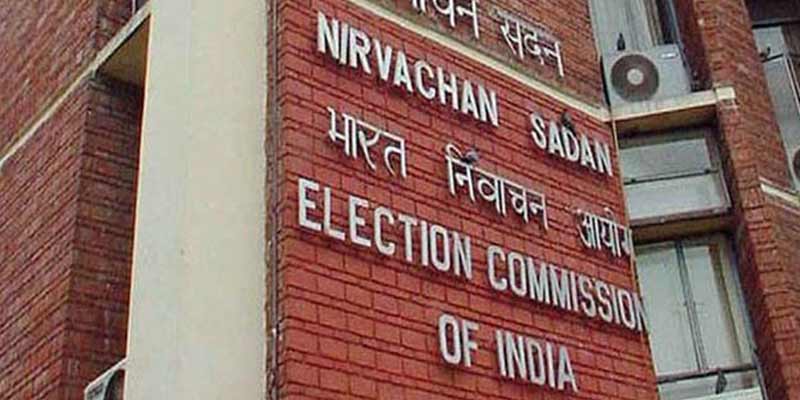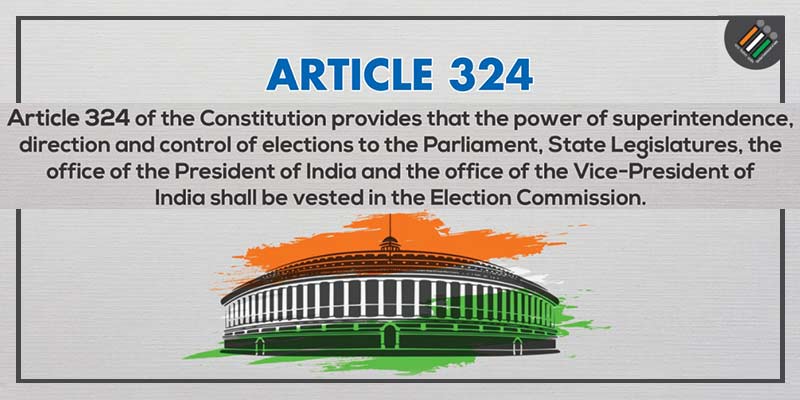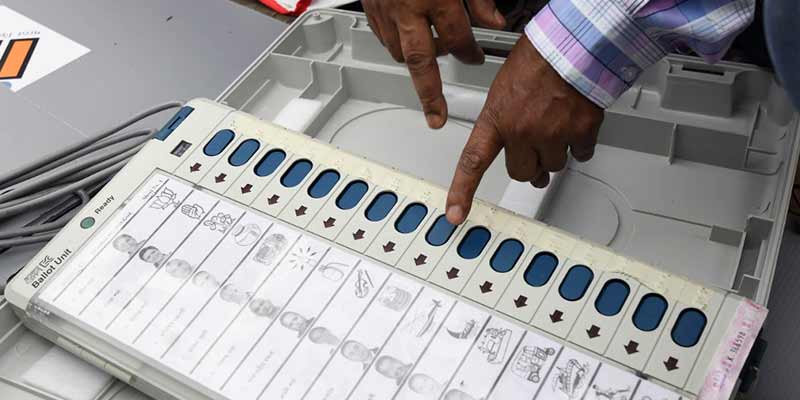- India
- May 04
Explainer - Model Code of Conduct
• Taking serious note of the plummeting level of campaign discourse during electioneering in Karnataka, the Election Commission asked political parties and their star campaigners to exercise caution and restraint in their utterances and not to vitiate the election atmosphere.
• The EC advisory came amid the use of barbs by leaders of parties against each other in the run-up to the Karnataka Assembly elections on May 10.
• The EC noted that as per the provisions of the Model Code of Conduct (MCC), the use of provocative and inflammatory statements, the use of intemperate and abusive language transgressing the limits of decency and attacks on the personal character and conduct of political rivals vitiate level-playing field.
• The spirit of the MCC is not just avoidance of a direct violation, it also prohibits attempts to vitiate the electoral space through suggestive or indirect statements or innuendoes.
Conducting elections
The Election Commission is vested with the powers and responsibilities of superintendence, direction and control of the entire process of preparation and revision of electoral rolls for, and conduct of, elections to the Houses of Parliament and Legislatures of the states and the Union Territories and of elections to the offices of President and Vice-President.
Elections are conducted according to the constitutional provisions, supplemented by laws made by Parliament and rules and orders made thereunder.
The major laws are:
• The Presidential and Vice-Presidential Elections Act, 1952.
• The Representation of the People Act, 1950.
• The Representation of the People Act, 1951.
What is Model Code of Conduct?
The Model Code of Conduct for guidance of political parties and candidates is a set of norms which has been evolved with the consensus of political parties who have consented to abide by the principles embodied in the said code and also binds them to respect and observe it in its letter and spirit.
The code guides how political parties, contesting candidates and parties in power should conduct themselves during the process of elections. It includes their general conduct during electioneering, holding meetings and processions, poll day activities and functioning of the party in power, etc.
Model Code of Conduct is not a statutory document.
Though Model Code of Conduct does not have legal sanctity, several of its provisions have enabling laws contained in the Indian Penal Code and the Representation of the People Act, 1951.
Origin of Model Code of Conduct
Kerala adopted, for the first time, a code of conduct for observance for political parties during the general election to the State Legislative Assembly in February 1960. A draft code was voluntarily approved by the representatives of the leading political parties of the state at a meeting specially convened for the purpose by the state government. This code covered, in detail, important aspects of electioneering, like meetings and processions, speeches and slogans, posters and placards.
During general election to House of People and simultaneous elections to several state Assemblies in 1962, the Election Commission circulated that code to all the recognised political parties and it proved to be effective in conducting of election campaigns in a peaceful and orderly atmosphere in the country. The political parties, by and large, followed the code.
Model Code of Conduct has come a long way since its inception in the 1960s. From a passive document, it has evolved into an effective and powerful tool in the hands of the Election Commission. Now, not only the political parties and contesting candidates but the public servants have also been brought in the ambit of Model Code.
The Election Commission has become more and more assertive to ensure observance of Model Code of Conduct in its true letter and spirit by all the stakeholders. The judiciary has recognised the fact that the Election Commission is well entitled to take necessary steps as per the provision of Model Code to ensure conduct of a free and fair election.
Parts of Model Code of Conduct
Model Code of Conduct contains eight parts:
• Part I of Model Code lays stress on certain minimum standards of good behaviour and conduct of political parties, candidates and their workers and supporters during the election campaigns.
• Parts II and III deal with the holding of public meetings and taking out processions by political parties and candidates.
• Parts IV and V describe how political parties and candidates should conduct themselves on the polling day and at the polling booths.
• Part VI exhorts political parties and candidates to bring their complaints to the notice of the observers appointed by the Election Commission for remedial action.
• Part VII deals with the parties in power. This part deals with several issues relating to the government and its ministers, such as visits of ministers, use of government transport and government accommodation, announcements of various schemes and projects, etc.
• The Part VIII says that election manifestos shall not contain anything repugnant to the ideals and principles enshrined in the Constitution and further that it shall be consistent with the letter and spirit of other provisions of Model Code.
When is MCC enforced?
The Model Code of Conduct is enforced from the date of announcement of election schedule by the Election Commission and is operational till the process of elections are completed.
What is the applicability of MCC?
• During general elections to House of People (Lok Sabha), the code is applicable throughout the country.
• During general elections to the Legislative Assembly (Vidhan Sabha), the code is applicable in the entire State.
• During by-elections, in case the constituency is situated in state capital/metropolitan cities/municipal corporations, then the code would be applicable in the area of concerned Constituency only. In all other cases the MCC would be enforced in the entire district covering the constituency going for bypoll.
What is the role of the EC in the matter?
• The Election Commission ensures its observance by political parties and contesting candidates in the discharge of its constitutional duties for conducting the free, fair and peaceful elections to the Parliament and the state legislatures under Article 324 of the Constitution of India.
• It is ensured that official machinery for the electoral purposes is not misused.
• Electoral offences, malpractices and corrupt practices such as impersonation, bribing and inducement of voters, threat and intimidation to the voters are prevented by all means. In case of violation, appropriate measures are taken.
Manorama Yearbook app is now available on Google Play Store and iOS App Store



